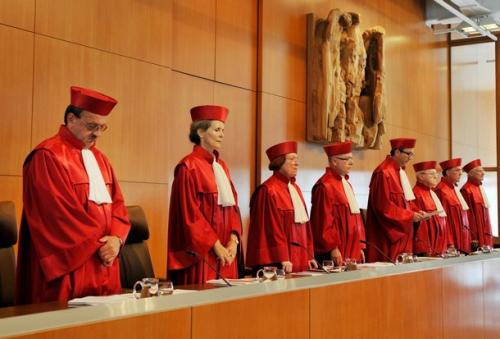
Germany’s top court in Karlsruhe is about to deliver its verdict on whether the ongoing attempts to contain the eurozone crisis breach the country’s constitution.
The Constitutional Court will decide whether the European Stability Mechanism (ESM) bailout fund and the European fiscal treaty are legal.
It is feared a negative decision could spark fresh turmoil in the markets.
Analysts expect the court will decide the schemes are legal and can continue – but only under certain conditions.

The court has recently allowed steps towards greater European integration, but has insisted the German parliament be given a greater say over decisions.
Critics argue that the ESM commits Germany to potentially unlimited funding of debt-ridden southern eurozone countries.
Some 37,000 people have signed a petition to the court asking it to block the ESM, and make it subject to a referendum.
Since Germany is due to contribute 27% to the 500 billion-euro rescue fund, it cannot proceed without German ratification.
In addition to its ESM verdict, the Constitutional Court is also due to rule on a new fiscal treaty aimed at forcing eurozone governments to adhere to strict budget discipline.
This is one of the most important cases faced by the court in post-war German history.
It has caused intense debate, with politicians and lawyers from across the political spectrum joining the case against the government – from the left party, Die Linke, to dissidents from within the government party.
If the judges take a hard line against the government and in favor of the plaintiffs, then the elaborate and laborious efforts to keep the euro together will be dealt a severe blow, perhaps a fatal one.
A likely outcome is that the judges will say the treaties are within the constitution – but then put a string of caveats in place, which might constrain, for instance, how the bailout fund could be expanded in the future.